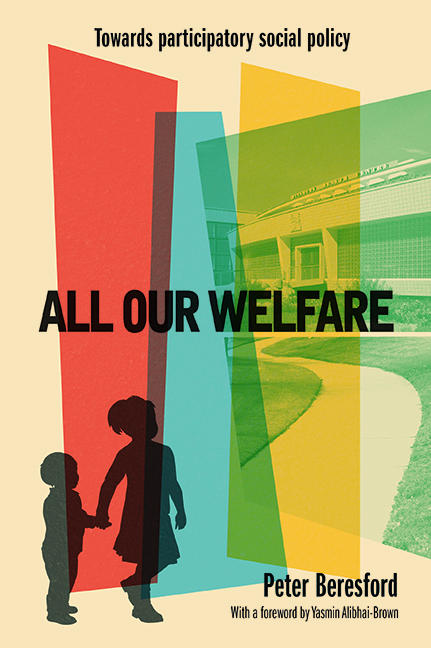Book contents
- Frontmatter
- Contents
- List of photographs and sources
- Foreword
- Dedication
- Acknowledgements
- Introduction Owning not othering our welfare
- Part One The legacy of the past
- Part Two The way to the future
- Afterword The future: a different way forward?
- Appendix One The family
- Appendix Two Research projects and related publications
- References
- Index
Eleven - Reconceiving research
Published online by Cambridge University Press: 01 September 2022
- Frontmatter
- Contents
- List of photographs and sources
- Foreword
- Dedication
- Acknowledgements
- Introduction Owning not othering our welfare
- Part One The legacy of the past
- Part Two The way to the future
- Afterword The future: a different way forward?
- Appendix One The family
- Appendix Two Research projects and related publications
- References
- Index
Summary
The real challenge, therefore, for research in the twentyfirst century is how to build an enterprise that exposes the real oppression and discrimination that people experience in their everyday lives without merely contributing to the classification and control of marginalized groups who seek nothing more than their full inclusion into the societies in which they live.
(Oliver, 2009, 118)We do not see things as they are. We see things as we are.
(The Talmud)Disability is a human rights issue requiring political action rather than a social problem requiring welfare provision.
(Oliver, 1992)As research was key in the foundation of modern mainstream social policy, so it has been in the emergence of the welfare service user movements that have challenged traditional understandings of social policy. In the history of modern social policy, social research has been both a related and an inextricably intertwined activity. It is also closely associated with the development of the discipline of sociology. Social research, like social policy, was tied to twin commitments of being scientific and involving ‘experts’ as mediators of knowledge and experience. Modern social policy was developing around the same time as the new ‘science’ of sociology and began with many of the same preoccupations as it did. These ranged from the individualism, social Darwinism and ‘survival of the fittest’ thinking of theorists such as Herbert Spencer (Taylor, 2007), to the interest in eugenics and the categorisation of disabled people associated with thinkers such as Henry Goddard (Zenderland, 1998). A direct line can be traced from Spencer’s laissez-faire thinking through Friedrich Hayek, Milton Friedman, Ronald Reagan and Margaret Thatcher, to current neoliberalism. We have seen how Fabians from the Webbs, Beveridge and Titmuss were also closely associated with eugenics, although this tends to be left out of or downplayed in modern discussions of them.
Social research has consistently occupied a central position in mainstream social policy, reflecting the latter’s concern to be seen as scientific and based on measurement. As we have seen, there is a longstanding tradition of surveys and studies, particularly statistical studies, which have been offered as the evidence base and justification for social policy and shaped its and wider understandings of the world and the people with whom it is concerned.
- Type
- Chapter
- Information
- All our WelfareTowards Participatory Social Policy, pp. 217 - 234Publisher: Bristol University PressPrint publication year: 2016



